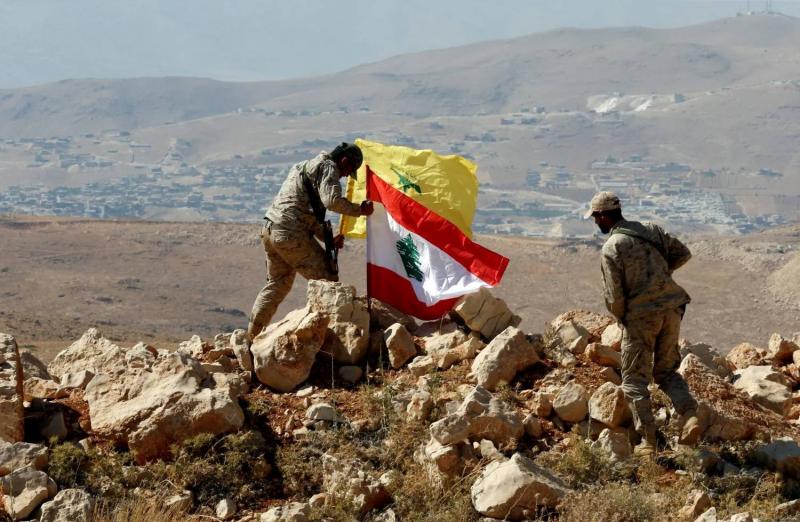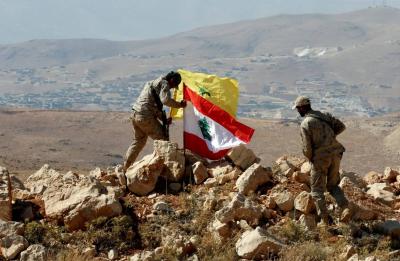The mutual military escalation between Hezbollah and Israel has not yet entered a high-tension phase that disrupts the rules of engagement established by UN Resolution 1701. This resolution assigned the Lebanese army, with the support of international forces operating in southern Lebanon, to enforce these rules, despite the involvement of Hamas and Islamic Jihad in widespread shelling since the end of the 2006 "July War." Unlike previous instances where Palestinian factions from the resistance axis launched light rockets that often fell on the edges of occupied Palestinian territories, the current exchange of fire between Hezbollah and Israel remains under control. It is a reaction to the war between Hamas and Israel, even though the party avoids addressing questions about whether the northern front along the Lebanese-Israeli border could ignite later if the Israeli army decides to invade the Gaza Strip.
The primary concern for the United States and several European Union countries is to engage Lebanon in all directions except Hezbollah, to gauge the latter's willingness to activate the northern front in retaliation against Israel if its army decides to enter Gaza. However, there have been no recorded communications, at least publicly, between the French embassy in Lebanon and Hezbollah officials, despite Paris being one of the first European capitals to maintain contact with the party.
Questions about Hezbollah's readiness to intervene to alleviate the unprecedented military pressure from Israel on Gaza remain unanswered, even as Iranian Foreign Minister Hossein Amir Abdollahian prepares to travel to Beirut concurrently with U.S. Secretary of State Antony Blinken's visit to Tel Aviv during his tour of several Arab nations. Tehran's involvement in communications indicates, from the perspective of Lebanese sources for Asharq Al-Awsat, that Iran intends to assert its political presence amid the ongoing conflict between Hamas and Israel. Meanwhile, Saudi Arabia plays its role in re-establishing stability in the region, evidenced by the extensive range of Arab and international contacts made by Saudi Crown Prince Mohammed bin Salman, which have garnered Lebanese interest due to the Kingdom's effective role in reducing tension and preventing it from spiraling out of control.
The same sources remark that Abdollahian's visit to the region, including Lebanon, indicates that Tehran seeks to be a partner in ending the war, especially with the intensifying Israeli blockade on Gaza. They question whether Iran and its ally Hezbollah were forewarned about Hamas's raid on Israeli settlements in the Gaza periphery or if it acted independently without prior notice. They affirm that the U.S. and several European countries are working to prevent the northern front from being activated to provide support for Israeli Prime Minister Benjamin Netanyahu to focus on military retaliations against Hamas, which has dealt a severe blow to Israeli military and security intelligence.
The swift return of U.S. Ambassador to Lebanon Dorothy Shea to Beirut was not as quick if she were not tasked with preventing the northern front's activation since Tel Aviv cannot bear opening a second front that would necessitate reducing its military blockade on Gaza. She has attempted to frame her appeal in the context that Lebanon's current situation requires the northern front to be neutralized to focus on solving its ongoing issues. She revealed that Lebanese Parliament Speaker Nabih Berri informed her during their meeting of the need to pressure Israel, which is closing doors to finding a solution to the Palestinian issue and continues to violate Lebanese airspace and breach Resolution 1701.
Washington's and Europe's actions may suggest a need for restraint and the preservation of stability in the south, allowing Lebanese people to address their problems. However, the primary concern for all involved is to avoid activating the northern front so that Tel Aviv does not have to scale back its forces in its war with Hamas. It has been confirmed that all parties communicating with U.S. and European ambassadors have not provided answers to their inquiries regarding Hezbollah's plans if Israel decides to invade Gaza.
Conversely, most local parties opposed to Hezbollah advocate for maintaining stability in the south on the grounds that Lebanon cannot bear the repercussions of opening a southern front. They urge the party to exercise restraint and not let Israel drag it into war. This has prompted former Progressive Socialist Party leader Walid Jumblatt to pass a message to Hezbollah Secretary-General Hassan Nasrallah through a contact in the party's liaison unit, advising against succumbing to war, as Lebanon can no longer sustain a new conflict, and his appeals do not align with American and European positions, which he has been quick to criticize.




